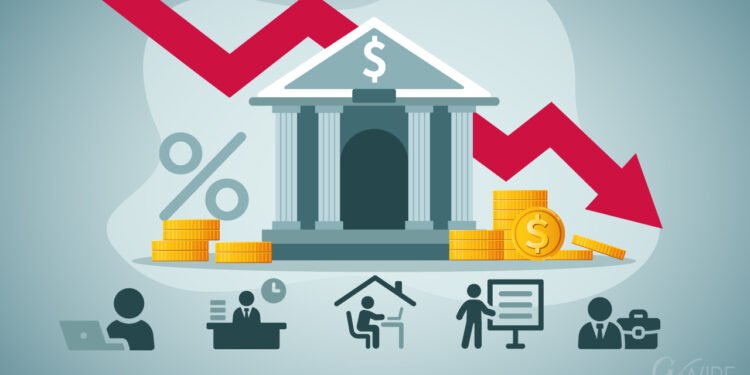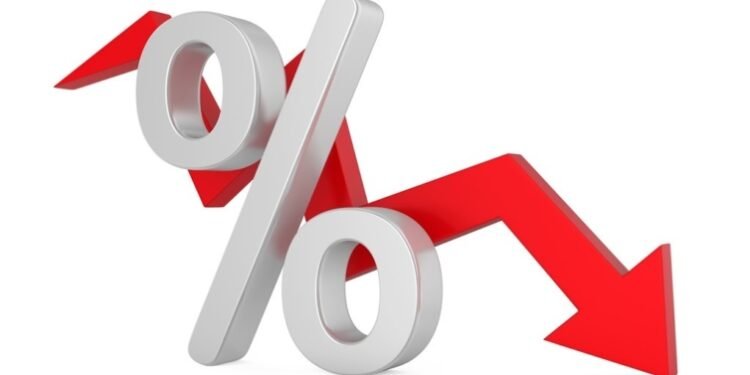Ghanaian consumers and businesses remain optimistic about the overall performance of the economy as the confidence index remains consistently above the benchmark this year, with a slight dip for the month of October.
According to the Bank of Ghana’s (BoG) “Summary of Economic and Financial Data” released for October, the Consumer Confidence Index (CCI) and the Business Confidence Index (BCI) radiate a fairly positive outlook, underscoring the resilience of the economy for the greater part of 2025.
The month-on-month Consumer Confidence Index dipped marginally to 115.3 points from its 116.9 points in August. Similarly, the month-on-month Business Confidence Index declined from its 107.5 points in August to 106.5 points in October. The 1.4 percent drop in the CCI and 0.9 percent drop in the BCI reflect a relatively minor shift in consumer and business sentiment.
The year-on-year Confidence Index shows a strong rebound, with consumers and businesses now showing more optimism in the economy than they did a year ago. The CCI bounced by 33.9 percent from 86.1 points in October 2024, while the BCI jumped by 12.9 percent from 92.8 points in 2024.
This signal improved economic fortunes for the Ghanaian economy. Consumers spent more in 2025 than they did in 2024, while businesses realised an improved business environment in 2025 than they did in 2024, for the same period. It can be deduced from the Bank of Ghana survey that both consumers and businesses are happier now than in the previous year.
The Consumer and Business Confidence Index
The CCI and BCI are significant economic indicators that assess the confidence or otherwise of consumers and businesses within the economy. The consumers and businesses in Ghana, in responding to the survey, reflected on the overall well-being of the economy while comparing it to their personal financial well-being and business upkeep and efficiency.

Consumer spending is a major driver of the economy of Ghana. The month-on-month CCI gives a continuous signal of consumers’ confidence in the current economy, reflecting potential economic expansion and an increase in spending. The CCI informs businesses in their hiring decisions and helps in production and inventory decisions.
Businesses, on the other hand, signal a conducive environment for expansion and innovation. Businesses will continue to invest more as the general economic outlook is favourable. With the high indexes, the government can also evaluate their policies and initiatives to sustain the current economic strides made.
The macroeconomic indicators that are beeping green have influenced such responses from Ghanaians. The successive high confidence in the economy correlates with the bullish stock market, as confident consumers are more willing to take financial risks.
With this high index score for CCI, consumers are more likely to spend, invest, and borrow more. The high BCI score shows that businesses can reinvest, innovate and increase output as consumers are likely to spend more.
Possible Reasons for the Dip
Though the performance still reflects a positive outlook, it’s a break from the consistent confidence increase since the beginning of the year. Consumers’ confidence has improved from 100.2 points in February to 103.6 points in April to 119.2 points in June, and to 116.9 points in August. The Business confidence also kept appreciating from 99.7 points in February to 102.2 points in April to 105.5 points in June, and then to 107.5 points in August.

The month-on-month dip between August and October could be due to the slow pace of economic stability, in reflecting in the daily economic activities of Ghanaians. A section of Ghanaians is unshaken by the current economic growth, as they cannot relate the economic growth to their daily lives. Hence, it will not present confidence in the economy. The financial security of Ghanaians has not changed, causing the negative feedback.
Even with reduced inflation and a relatively stronger Ghana Cedi, among other improved macroeconomic indicators, the economy is yet to respond fully to this economic upgrade. When the Ghana Cedi began to appreciate earlier this year, it took months to reflect on import costs and the general cost of goods. Some goods today have still not fully responded to the economic stability through reduced prices. For instance, it was just a few weeks ago that the price of cement dropped.
The persistent unemployment within the country could also be a reason for the slightly reduced confidence. Initiatives of the government are yet to materialise, causing scepticism in a section of Ghanaians.
As the year gradually comes to an end, certain expectations of individuals may be short-lived going into the new year and could also account for the slight dip in confidence.
Generally, Ghanaians, both consumers and businesses, are confident in the current state of the economy and this can translate to a further expansion of the economy.
READ ALSO: Ghana’s Banking Assets Explode Past GHS 423bn as Sector Posts Strongest Recovery Since DDEP























